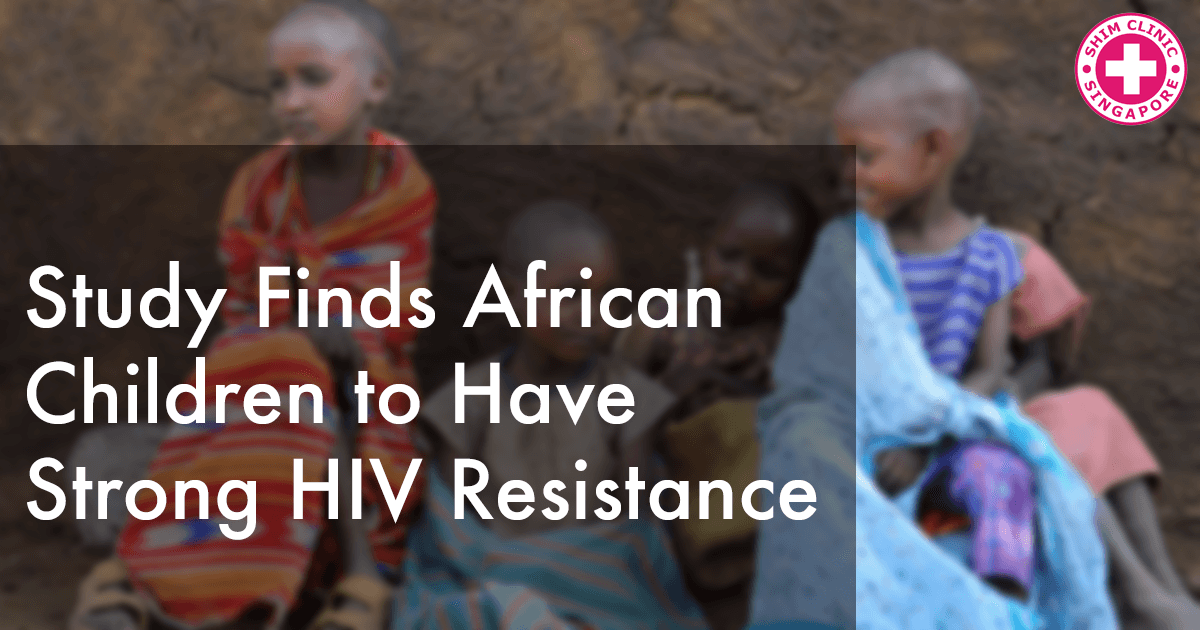A study published in the journal of Science Translational Medicine has found that there are African children with a super strong immune system similar to that of monkeys that protects them from developing AIDS. This is despite the kids having HIV. According to the study conducted in South Africa, this strong immune system is prevalent in about one in ten children infected with HIV.
The study done by scientists from Oxford University, came across 170 children infected with HIV and had not received any treatment and interestingly had not developed any symptoms linked to AIDS. According to professor Philip Goulder from the university’s department of pediatrics, despite the children having high levels of HIV virus in their blood, their immune systems remained calm.
According to Goulder, the virus in the children’s blood was not attacking their natural defences thus protecting their immunity system from being wiped out. Normally, when HIV is left untreated, it kills 60 percent of kids within two and a half years.
Two Data Sets
The researchers surveyed two groups of children. The first group was in the city of Durban and the second group was in Kimberley. Kimberley is an old diamond mining town that borders Botswana. According to findings of the survey, about 5 to 10 percent of children from the two groups had infections that were not progressing. This was despite no treatment being given to the children.
Goulder noted that it wasn’t clear why these children were resisting the HIV virus but compared their immune systems to that of monkeys that had developed a similar resistant, having lived with a version of HIV known as SIV for hundreds of thousands of years.
The scientist said that there were about 40 African monkey species that have been living a normal life even though they had SIV. He added that this shows that the effects of HIV were not dependent on the virus itself but on an individual’s immune system response to it. The scientist said that these findings, though still a long way from finding a cure for AIDS, could help scientists to ‘tweak the immune response in a bid to ameliorate the disease.
A Pointer to HIV Cure
According to Goulder, the emergence of antiretroviral drugs that are keeping about 17 million people with HIV worldwide healthy is a big step in managing HIV. However, these new findings pose a bigger success should scientists learn more from them.
Goulder believes that if we were to let natural selection take its course over the next thousand or hundred thousand years, there would emerge child survivors who are immune to HIV. This possibility, he feels, may be impeded by antiretrovirals which, though valuable, are blocking this evolutionary and natural process. This is because the people on ARTs have children whose immune systems will not evolve to fight HIV naturally.
These new findings are good news to the medical world and especially scientists who are working hard to find a cure for AIDS. Though not an easy pointer to a cure, the findings could explain further how HIV reacts in different immune systems.
Current Options
While researchers are working to find a possible cure to this epidemic. There are many ways to keep yourselves protected and even when you have been exposed, there are treatment options to prevent infection from taking hold. Practice safe sex by using condoms correctly, not doing drugs, especially injected drugs, staying loyal to one sexual partner and not engage with sex workers. If you are living a sexual lifestyle that is high-risk, it is important to go to an STD clinic in Singapore freqently for HIV testing as well as testing for other STDs. It is also important to know some of the HIV symptoms frequently encountered like fatigue, swollen lymph nodes as well as malaise.


Pingback: Study Find African Children to Have Strong HIV ...